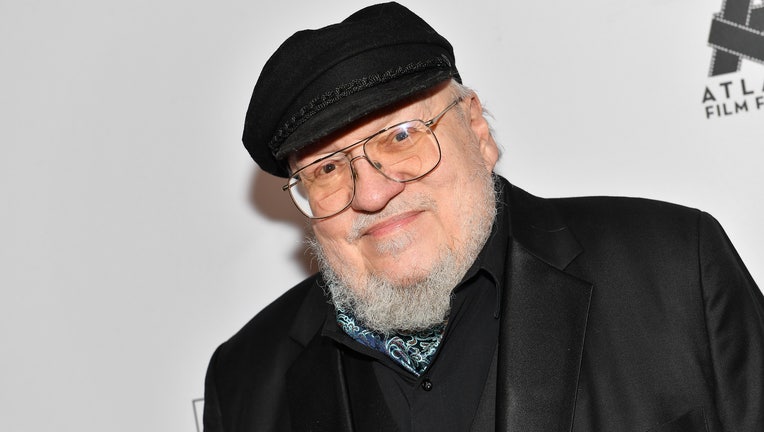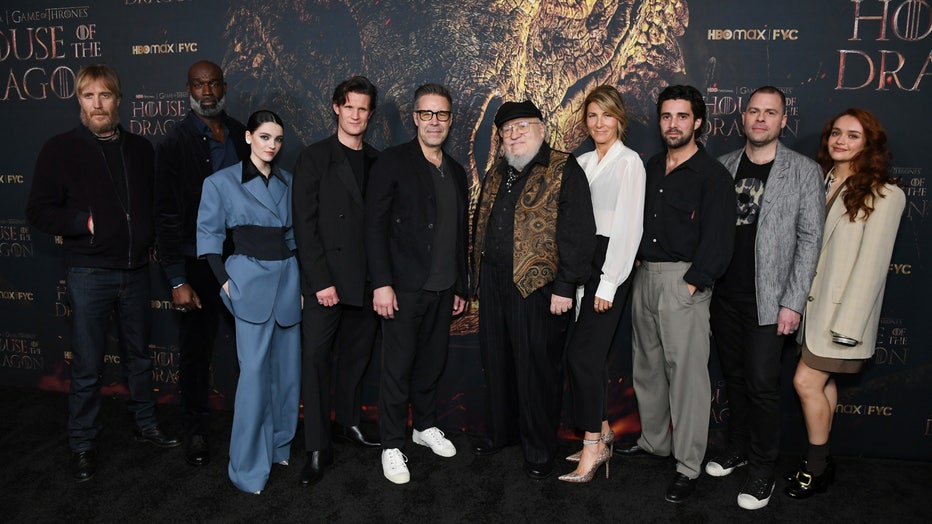Three animated 'Game of Thrones' spinoffs in the works, George R.R. Martin says

George R.R. Martin attends the 2023 Image Film Awards during the 2023 Atlanta Film Festival at The Fox Theatre on April 23, 2023 in Atlanta, Georgia. (Photo by Paras Griffin/Getty Images)
The fantasy novel series that inspired HBO’s wildly popular "Game of Thrones" may come to life on TV again in animated form, author George R.R. Martin says.
The 75-year-old novelist – whose epic fantasy novels, "A Song of Ice and Fire," are the basis of the hit HBO series and a spinoff – discussed the three animation projects with HBO in a blog on his website. (Martin doesn’t like the shows to be labeled "spinoffs" and would much rather people referred to them as "successor shows.")
"Nine Voyages," an HBO prequel to "House of the Dragon" about the voyages of the Sea Snake, has moved from live action to animation due to budget constraints, "a move I support fully," Martin says.
He didn’t give details on the other two animated shows, but he did note that none have been given the green light yet.
"I think we are getting close to taking the next step with a couple of them," he teased. "Will any of them make it to air? Happen? No way to know. Nothing is certain in Hollywood."
Martin was initially working with HBO on four animated show ideas, but two of those have been shelved, he says.

Rhys Ifans, Steve Toussaint, Emily Carey, Matt Smith, Paddy Considine, Josh Gad, George R. R. Martin, Eve Best, Fabien Frankel, Ryan Condal and Olivia Cooke attend the FYC special screening for HBO Max's "House Of The Dragon" at DGA Theater Complex
In April, HBO's streaming service Max announced it ordered a "Game of Thrones" prequel called "A Knight of the Seven Kingdoms: The Hedge Knight," set in Westeros 100 years prior to the events of "Game of Thrones."
"House of the Dragon," also a "Game of Thrones" prequel, has begun production on its second season for HBO. Season two is expected to stream in summer 2024.
Martin also made headlines in September when he and 16 other authors filed a lawsuit against OpenAI for "systematic theft on a mass scale." It’s the latest in a wave of legal action by writers concerned that artificial intelligence programs are using their copyrighted works without permission.
The authors allege "flagrant and harmful infringements of plaintiffs’ registered copyrights" and call the ChatGPT program a "massive commercial enterprise" that is reliant upon "systematic theft on a mass scale."
The suit was organized by the Authors Guild and also includes David Baldacci, Sylvia Day, Jonathan Franzen and Elin Hilderbrand, among others.
The Associated Press contributed to this report.

